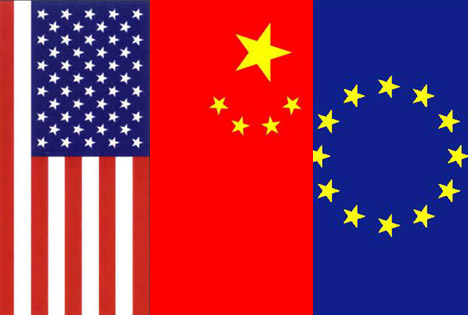EU, China, US eye common product safety standards
 Brussels - The European Union, China and the United States said Monday they were committed to creating common safety standards for toys and other consumer products.
Brussels - The European Union, China and the United States said Monday they were committed to creating common safety standards for toys and other consumer products.
While "we may come from different angles" on safety, "we are moving in the same direction," said Meglena Kuneva, the EU's consumer protection commissioner, after a meeting in Brussels with top consumer protection officials from the US and China.
"If we speak with one voice... industry will listen," said Nancy Nord, head of the US Consumer Product Safety Commission.
Nearly 90 per cent of the toys on sale in Europe are made in China. At the same time, about 50 per cent of the unsafe goods that have been withdrawn from EU markets in recent years are of Chinese origin.
But while China's Wei Chuanzhong said the meeting had created a "favourable environment" for consumer protection, none of the participants were willing to indicate when the creation of such common standards might be achieved.
"We will do anything possible to speed up our efforts," Kuneva said when asked to commit herself to a date.
Many of the products that are sold in Europe already have to bear a mandatory conformity mark. But the so-called CE mark does not necessarily guarantee that a product is safe.
The issue of toy safety came to the fore last year, when US manufacturer Mattel was forced to recall more than 18 million magnetic toys made in China.
The recall followed reports that a child had died in the US and that dozens others had to undergo surgery to remove tiny magnets they had swallowed.
That case prompted the EU, China and the US to develop a common set of safety standards for such products.
Egged on by the European Parliament, officials in Europe now want to extend this to all toys and, eventually, to a wider range of consumer products.
The meeting in Brussels was the first of its kind and saw the three sides step up cooperation, for instance by sharing more information about which products they deem to be dangerous and in need of being recalled.
On the margins of the meeting, the European Commission and China also agreed to beef up controls on potentially dangerous Chinese foods and products exported to the European Union.
Under the deal, China will now be obliged to inform the EU about what it is doing to track down dangerous goods.
In return, Chinese officials will be given access to the EU's Rapid Alert System for Feed and Food (RASFF), where controlling authorities can exchange information about what measures are being taken to ensure food safety.
The deal follows a major scandal involving contaminated milk powder that left at least four infants dead and 53,000 others hospitalized in China. Some dairy products made with the contaminated Chinese milk were also seized by police in Italy.
"Trust is the currency of the global economy," said Kuneva, noting that closing down markets would only result in more expensive products. (dpa)